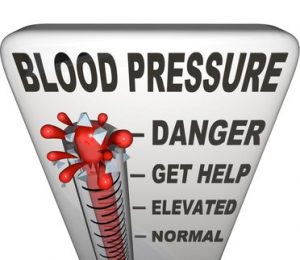Is Dairy Right For You?
Author: Dr. Stephen Chaney
 We have been told for years that dairy foods are good for us. They are part of the USDA five food groups. In fact, they are part of the dietary recommendations of every government and most health organizations across the world.
We have been told for years that dairy foods are good for us. They are part of the USDA five food groups. In fact, they are part of the dietary recommendations of every government and most health organizations across the world.
And dairy foods are nutritious. They are excellent sources of calcium, potassium, protein, and vitamins A and B12. And if they are fortified, they are also an excellent source of vitamin D. Many health experts consider them essential for healthy bones. So, you might be saying, “Case closed. We should all be eating more dairy foods”.
But, not so fast. Many dairy foods are high in saturated fats. In fact, 65% of the fat in dairy foods is saturated. We have known for years that when saturated fats replace polyunsaturated fats in the diet, LDL cholesterol levels increase. And, as I reported in a previous issue of “Health Tips From the Professor” there is excellent evidence that replacing polyunsaturated fats with saturated fats substantially increases the risk of dying from heart attack, stroke, and other forms of heart disease.
The widely accepted message from these studies is that saturated fats raise LDL cholesterol levels and increases our risk of dying from heart disease. If we accept this message, it poses a dilemma. Dairy foods are nutritious. But they are high in saturated fat. What should we do?
The answer from the American Heart Association and most other health organizations is simple. We should eat low-fat dairy foods.
But this is where it gets really confusing. Dairy foods are composed of much more than saturated fats. And you have probably seen the claims that full fat dairy foods don’t increase the risk of heart disease.
So, what is the truth about full-fat dairy foods and heart health? In this issue of “Health Tips From The Professor” I review three recent studies and the recommendations of the Heart Foundation because they shed light on this question.
Is Dairy Bad For Your Heart?
 Before I answer this question, I should point out that there are two ways of looking at it.
Before I answer this question, I should point out that there are two ways of looking at it.
- As I said above, the studies proving that saturated fats increase the risk of heart disease, substituted saturated fats for polyunsaturated fats and controlled every other aspect of the diet. That has led the American Heart Association and other organizations to recommend that we eat low-fat dairy foods.
- However, when most people hear that recommendation, they simply substitute low-fat dairy for full-fat dairy foods without changing any other aspect of their diet or lifestyle. The first two studies were designed to see if that approach was effective for reducing heart disease risk.
The first study (KA Schmidt et al, American Journal of Clinical Nutrition, 114: 882-892, 2021) was a randomized controlled trial that compared the effect of low-fat dairy foods and full-fat dairy foods on heart health parameters.
The participants in this study were:
- Average age = 62
- 56% male
- 75% white
- Average weight = 214 pounds
- All of them were prediabetic
All participants were told to stick with their usual diets (probably typical American diets) except for the amount and type of dairy foods added to their diet. During the first four weeks they restricted dairy consumption to 3 servings of nonfat dairy/week so they would all be starting with the same amount of dairy consumption. Then they were divided into 3 groups for the 12-week study:
- Group 1 continued with 3 servings of nonfat dairy/week.
- Group 2 added 3 servings of low-fat dairy/day to their usual diet.
- Group 3 added 3 servings of high-fat dairy/day to their usual diet.
At the beginning of the study and again at the end of the 12-week study LDL cholesterol, HDL cholesterol, triglycerides, free fatty acids, and blood pressure were measured. The results were:
- There was no difference in LDL cholesterol, HDL cholesterol, triglycerides, free fatty acids, or blood pressure in the three groups at the end of 12 weeks.
- There was no also significant change in LDL cholesterol, HDL cholesterol, triglycerides, free fatty acids, or blood pressure during the study in any of the three groups.
The authors concluded, “A diet rich in full-fat dairy had no effect on fasting lipid profile or blood pressure compared with diets limited in dairy or rich in low-fat dairy. Therefore, dairy fat, when consumed as part of complex whole foods does not adversely affect these classic cardiovascular disease risk factors.”
[Note: The last sentence is key. Remember the “proof” that saturated fats increase LDL levels and increase the risk of heart disease come from studies in which saturated fats were substituted for polyunsaturated fats and every other aspect of the diet was carefully controlled.
In this study, and others like it, the effects of saturated fats are studied in a complex food (dairy) in the presence of an even more complex diet containing many foods that influence the risk of heart disease.]
The second study (J Guo et al, European Journal of Epidemiology 32: 269-287, 2017) was a meta-analysis of  29 studies with 938,465 participants looking at the association of full-fat dairy consumption with the risk of dying from heart disease.
29 studies with 938,465 participants looking at the association of full-fat dairy consumption with the risk of dying from heart disease.
Seven of the 29 studies were conducted in the United States. Of the remaining studies 3 were from Japan and Taiwan, 2 were from Australia, and 17 were from Europe.
The results of the study were:
- There was no association between full-fat dairy, low-fat dairy, and total dairy consumption and risk of dying from heart disease.
When the results were broken down into individual dairy foods.
- There was no association between milk consumption and risk of dying from heart disease.
- Consumption of one serving/day of fermented dairy foods was associated with a 2% decreased risk of dying from heart disease.
The authors concluded, “The current meta-analysis of 29 prospective cohort studies suggested no association of total, high and low-fat dairy and milk with risk of cardiovascular disease. In addition, a possible role of fermented dairy was found in cardiovascular disease prevention, but the result was driven by a single study.” [I would add that this effect, if confirmed by subsequent studies, is extremely small (2%).]
The first two studies do not say that full-fat dairy foods are heart healthy for everyone, as some headlines would have you believe. Instead, these studies show fairly convincingly that simply switching from full-fat to low-fat dairy foods, without changing any other aspect of your diet and lifestyle, is not as effective at decreasing your risk of heart disease as some experts would have you believe.
 The third publication (WC Willett and DS Ludwig, New England Journal of Medicine 382: 644-654, 2020) was a review of the effect of dairy foods on our health. One of the authors, Walter C Willett, is one of the top experts in the field. The review covered many topics, but I will focus on the section dealing with the effect of dairy foods on heart health.
The third publication (WC Willett and DS Ludwig, New England Journal of Medicine 382: 644-654, 2020) was a review of the effect of dairy foods on our health. One of the authors, Walter C Willett, is one of the top experts in the field. The review covered many topics, but I will focus on the section dealing with the effect of dairy foods on heart health.
This review took a more nuanced look at full-fat dairy foods and examined the effect of substituting full-fat dairy for other protein foods.
The review concludes, “The association of milk with the risk of cardiovascular disease depends on the comparison foods. In most cohort studies [such as the studies described above], no specific comparison was made; by default, the comparison was everything else in the diet – typically large amounts of refined grains, potato products, sugar, and meat.”
The review went on to say that previous studies have shown:
- “Both full-fat and low-fat dairy foods…were associated with a lower risk [of cardiovascular disease and stroke] than…the same number of servings of red meat but with a higher risk than seen with the same number of servings of fish or nuts.”
- “Dairy fat…was associated with a higher risk of cardiovascular disease than was polyunsaturated or vegetable fat.”
- “For persons living in low-income countries where diets are very high in starch, moderate intake of dairy foods may reduce cardiovascular disease by providing nutritional value and reducing glycemic load [the amount of easily digestible carbohydrate in the diet].”
Is Dairy Right For You?
 Now I am ready to answer the question posed at the beginning of this article, “Is dairy bad for your heart?” The answer is, “It depends”.
Now I am ready to answer the question posed at the beginning of this article, “Is dairy bad for your heart?” The answer is, “It depends”.
- As described above, the effect of dairy on heart health depends on our overall diet. It also depends on our lifestyle, our weight, and our health.
- In addition, clinical studies report averages, and none of us are average. We all have unique diets, lifestyles, health status, and genetic makeup.
So, what does this mean for you? Perhaps it is best summed up by the recommendations of Australia’s Heart Foundation which take health status, lifestyle, and genetic differences into account:
- A heart healthy diet can include dairy, but it is not essential [with careful planning and/or supplementation you can get your calcium and protein elsewhere].
- Milk, yogurt, and cheese are considered neutral for heart health, meaning they neither increase nor decrease the risk of heart disease for the average person. However, the recommendations vary depending on health status, genetics, and lifestyle:
-
- Low-fat milk, yogurt, and cheese are recommended for people with heart disease or high cholesterol because the fat in dairy foods can raise cholesterol more for these people. [Note: If cholesterol is elevated, it usually means that individual has a hard time regulating blood cholesterol levels because of obesity, genetics, or pre-existing disease. For these individuals, diets high in saturated fat are more likely to increase LDL cholesterol and risk of heart disease.]
-
- Full-fat milk, yogurt, and cheese can be part of a heart healthy diet for healthy people provided most of the fat in the diet comes from fish, nuts, seeds, and healthy oils. [Note: Overall diet is important.]
- Choosing unflavored milk, yogurt, and cheese helps limit the amount of sugar in your diet.
- Ice cream, cream, and dairy desserts should be eaten only sometimes and in small amounts because they have more sugar and fat, and less protein, vitamins, and minerals than other dairy foods.
- Butter raises LDL cholesterol levels, especially in people who already have elevated cholesterol.
-
- There is no evidence that butter can be part of a heart healthy diet, so you should consider healthier options such as olive oil, avocado, nut butters, and spreads made with healthier oils, such as olive oil.
The Bottom Line
We have been told for years that dairy foods are good for us. They are part of the USDA five food groups. In fact, they are part of the dietary recommendations of every government and most health organizations across the world.
However, dairy foods have been controversial in recent years. Some experts claim that only low-fat dairy products can be heart healthy. Others claim that full-fat dairy foods are just as healthy as low-fat dairy foods.
I shared three recent publications and dietary recommendations from The Heart Foundation that shed light on these controversies.
The first study found that full-fat dairy foods did not increase LDL cholesterol, triglycerides, and other heart disease risk factors.
The second study was a meta-analysis of 29 clinical studies with almost one million people. It found that full-fat dairy foods did not increase the risk of dying from heart disease.
“Case closed”, you might say. However, these studies do not say that full-fat dairy foods are heart healthy for everyone, as some headlines would have you believe. Instead, these studies show fairly convincingly that simply switching from full-fat to low-fat dairy foods, without changing any other aspect of your diet and lifestyle, is not as effective at decreasing your risk of heart disease as some experts would have you believe.
Moreover, these studies do not account for the effect of overall diet, lifestyle, health status, and genetics on the risk of heart disease.
That is why I included the third study in my review. It took the overall diet into account and concluded the effect of full-fat dairy foods on heart disease risk depends on the overall diet.
- For some diets full-fat dairy increases heart disease risk.
- For other diets full-fat dairy has no effect on heart disease risk.
- And for some diets full-fat dairy may even decrease heart disease risk.
Finally, I included recommendations of the Australian Heart Foundation because they included the effect of health status, lifestyle, and genetics in their recommendations.
For more details on the findings of the third study and the recommendations of the Heart Foundation, read the article above.
These statements have not been evaluated by the Food and Drug Administration. This information is not intended to diagnose, treat, cure, or prevent any disease.







